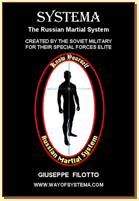There are many reasons why RP games are a net positive, especially for young adults, but for a whole bunch of people that are defined as adults. Zoomers, Millennials, even GenX (who know RPGs the most) can benefit from them.
Aside from the general benefits listed below, today, this seemingly innocuous or nerdish activity, makes most of these benefits be far more useful and beneficial than ever before. If you are a under 45 or so, please listen to what I will describe below. It’s important. It makes a difference. And it doesn’t matter if you play one of my RPGs or you prefer others. What matters is that you take a small step back in time and learn an activity that has more benefits for you than you can possibly imagine until you actively begin to do it. Let me count the ways then, the importance of each may vary from person or group to person or group, but one important point to remember is that for any person or group, at least some of these benefits will be very important, and, for all of them, the combined synergy of them all, results in an overall benefit that is more than the sum of its parts.
Teamwork
Those who know me are perfectly aware that I am hardly a gregarious social butterfly, and in fact, more like an ornery and misanthropic hermit. Nevertheless, as irritating as I may find the bast majority of humanity, the absolute fact remains that being able to work alongside others, being both a support for others as well as able to rely on others, is possibly the most fundamental concept of successful human communities, and since building our own communities, that reject, ignore, and, eventually —if a hot kinetic collapse takes place— might have to fight back against clown world, is pivotal, anything that fosters, teaches and promotes the ability to work with others for mutual benefit, is important.
The beauty of this is that you will have to deal with all sorts of personalities. Firstly the real physical ones of the others players and referee, secondly, of those imagined and played out of their characters and the non-player characters your referee (or DM in RPG parlance — Dungeon Master) puts in your path.
Having to both imagine characters with personalities different from your own and doing a good job of it by not making them one-dimensional characters, but rather complex, if different characters does two things, at a minimum. It creates a flexibility of mind that allows you to better cope and deal with other human beings that may have radically different sets of values, ideologies, belief systems, and methods of operation. Secondly, it teaches you how to interact with such people and even difficult situations in a variety of ways. While at first in RPGs the “solution” will be to kill everyone in the room, after that novelty wears off and the referees become better at creating scenarios, actual role-playing out alternatives will become a feature. And finding solutions that the players cooperate in will produce at times catastrophic results, at times unexpected awesome one, but all in the comfortable safety of your table and lounge. Usually with hilarious results. The ability to at least work together even with people you might otherwise not enjoy the company of, whether in real life or in the pretend world of secret agents, spacemen, dragons and werewolves is in all cases a useful skill.
Problem Solving
Nothing exercises the imagination quite as much as trying to figure out how to escape from the slaver’s prison, find the clues to who is really behind a conspiracy, a mass murder, or a homicide masquerading as an accident. Or avoiding the traps and magical wards of an evil warlock. Or coming up with improvised solutions to avoid your damaged spaceship from being swallowed by the gravity well of a nearby gas giant. Regardless of how “improbable” some RPG scenarios might be in real life, the attitude towards a seemingly impossible problem, and the will and ability to find solutions is a skill that is 100% transferable to real life and everyday problems. The human mind cannot differentiate between finding solutions to real or imagined problems. The principal activity is the same. And if you get disheartened in real life, sometimes, all it takes is for you to consider: “Right, what would my character in my favourite RPG do if faced with this situation?”
And… just standard internet disclaimer: if your answer is “kill everyone in the room” perhaps rethink your strategy, and above all, don’t blame a game, or me, for any idiotic action you decide to take, remember, only YOU are responsible for your actions. No one else.
The point is that problem solving is a key skill to have in ANY life. And RPGs foster it. Add in the teamwork bit and you now have a far superior human being in terms of effectiveness than one who has neither skill. And the synergy of both skills creates a much better and more capable person.
Leadership
In a group of people playing RPGs, one tends to become the referee, or DM, who presents the scenario to the other players, keeps track of the campaign, resolves any rules disputes, and generally sets the tone for the campaign or adventures. The best DMs manage all of these separate activities in a flawless fashion that provides entertainment, wonder and enjoyment and real emotions to the other players, without being an autocratic tyrant imposing his iron will on the players as a misplaced need to control everything. While not everyone is a naturally good DM, it’s a skill that too can be learnt and the preparation for a game require the learning of several skills that are required for any leader. Discipline, preparation, and planning, which are all the standard and expected skills everyone tells you about, but also those that are often neglected or sometimes not even mentioned:
Improvisation, flexibility of methodology with rigidity of objective, as well as flexibility of objective depending on circumstances. Keeping cool under pressure, quick thinking that looks like a premeditated plan to others but is a spur of the moment solution to an unexpected problem or development. Contingency planning (plan B, and C and the much used “Oh, fuck! Wing it!”).
Everyone should have a few goes at being DM.
It gives you a deeper appreciation for the game, the difficulty your usual DM has to face, and how to be a better player when you return to the other side of the player-DM divide.
And there is always the added bonus of the synergy of teamwork, problem solving and leadership, which, once again, elevates you as an overall more capable human being.
Role Playing Real Possibilities
If you think roleplaying is just for silly geeks removed from reality, think again. Every standing army on the planet literally roleplays various scenarios. That’s right, RPGs are literally matters of life and death if used correctly.
If you take the approach of using game systems that are set in the modern world, like Top Secret, or my own Surviving the Current Zombie Apocalypse RPGs or if you adapt something like Traveller to function in a modern-day setting, you can create scenarios that are specific to possible situations, be they extreme, fantastic, or even realistic, that might apply to you. With a little extra effort, you can set the game in your own geographical area. Using real paper maps or print outs from google maps that show current locations and landmarks. Creating a storyline that fits the present day or a version of it that can present your players with learning opportunities and/or hilarious scenarios. You can even incorporate a bit of live action roleplaying, leaving clues in the physical world or requiring some tasks in it; like, say, take a picture of the local church’s most prominent painting, or count the number of steps of a particular staircase in a shopping centre, or a million other adapted things that are innocuous and harmless to everyone, but represent an important factor in the imaginary world of the game adventure being played out. Perhaps you can even go so far as plan hikes and even camping trips that are somehow, to one degree or other, tied to a RPG scenario, or incorporated within it. What better way to learn about navigation by the stars and paper maps than to do it for real? And yet, also have the lifeline of actual mobile phones and GPS in case (or when) you screw it up.
Roleplaying games give you the opportunity to teat out scenarios safely and learn real life skills in a safe way, so that if they are ever needed, you actually are not starting from zero.
Conclusions
Human beings are literally wired to learn from story-telling. The better the story, the more engrossing and engaging it is, the more our neural pathways get involved, and the more that happens, the more actual real-life abilities develop. This is simply a neurological fact. It’s also not very useful if you only passively listen to a story without ever engaging your body. This is the difference between a couch potato and a roleplayer. The rolepalyer is at least taking the physical action to sit around with other people and physically interact with them. They take the physical action of at least writing and keeping notes and paying attention and interacting, not just passively absorbing information but help shape it. This is how human beings learn. If you then take an additional step and take that learning into the real world, well, you’re now a more resourceful and capable human than 99% of the planet. The roleplayer that decides to go on a hike to learn how easy or hard it is to camp out in the wild using only what you can carry with you, is a far more accomplished person than the one who binge watches a TV series.
Playing RPGs will fire your imagination and will eventually get you to wonder and want to learn some things in real life. Be it world-building that leads you to write the next Lord of the Rings, or just learning how to make a fire, or use a compass, or take up combat shooting, or, or, or… the possibilities are endless.
My own RPGs are specifically set in either the current world, or a western one that is easily adaptable to almost any scenario. But there are many RPGs out there. Pick one, or a few, and find, gather, or make a few friends and get around a table with paper, pencils, and dice, and begin saving and conquering new worlds.









[…] Although this is not the same as playing live IRL, at least you should get a sense of the fun that can be had. The reason I think this is important were explained in this post I did about how no one realised how useful pen and paper RPGs were… until now. […]